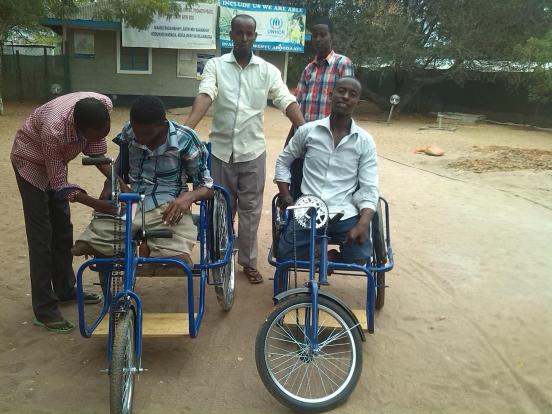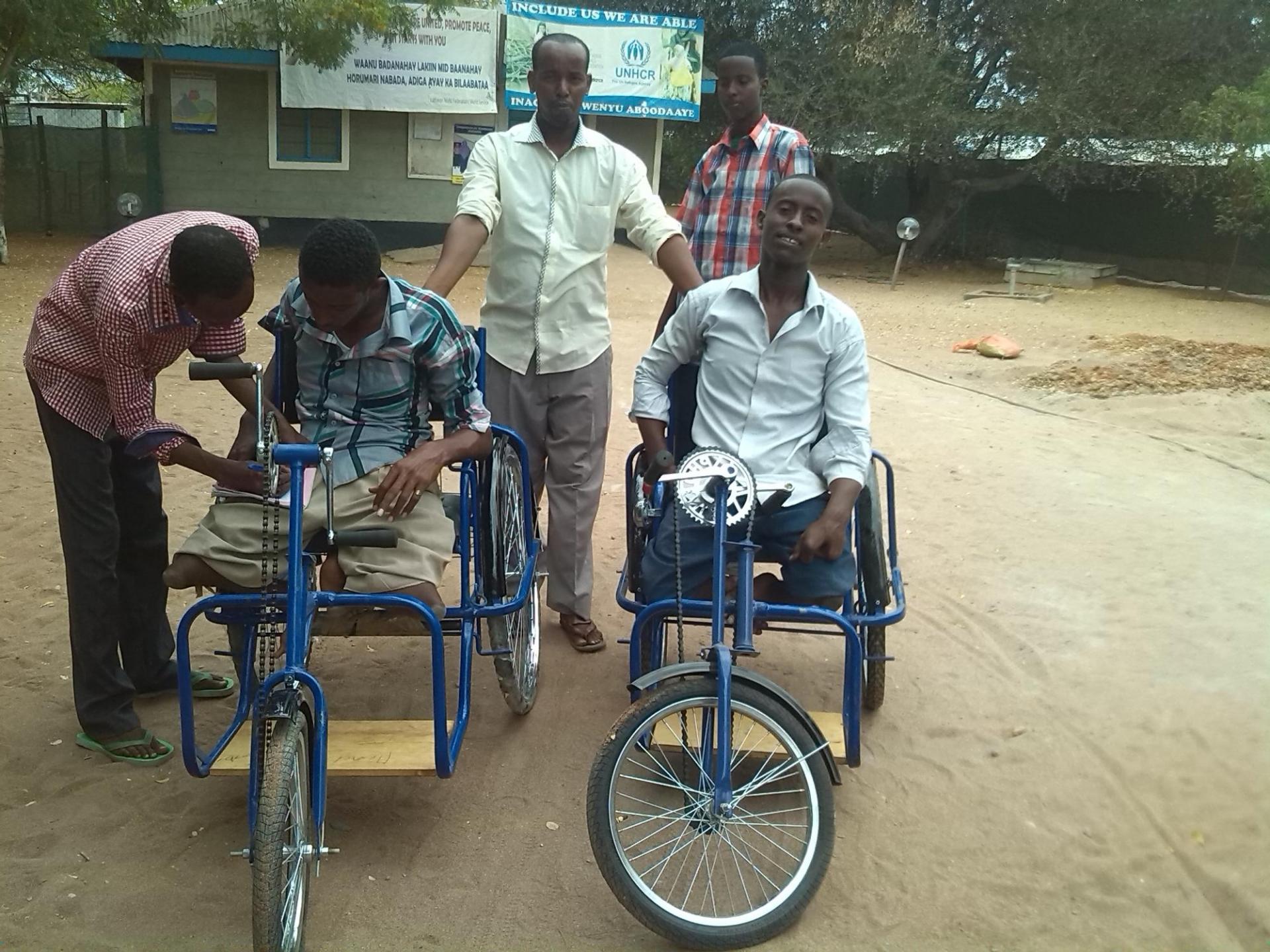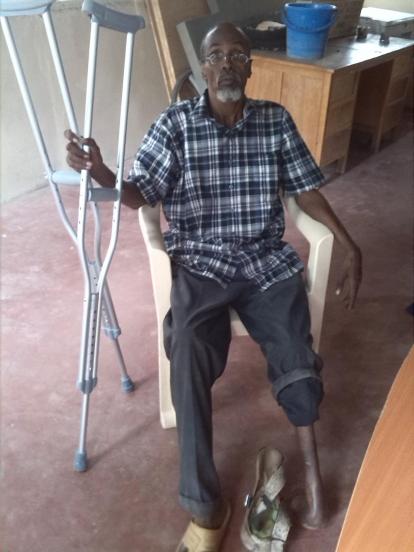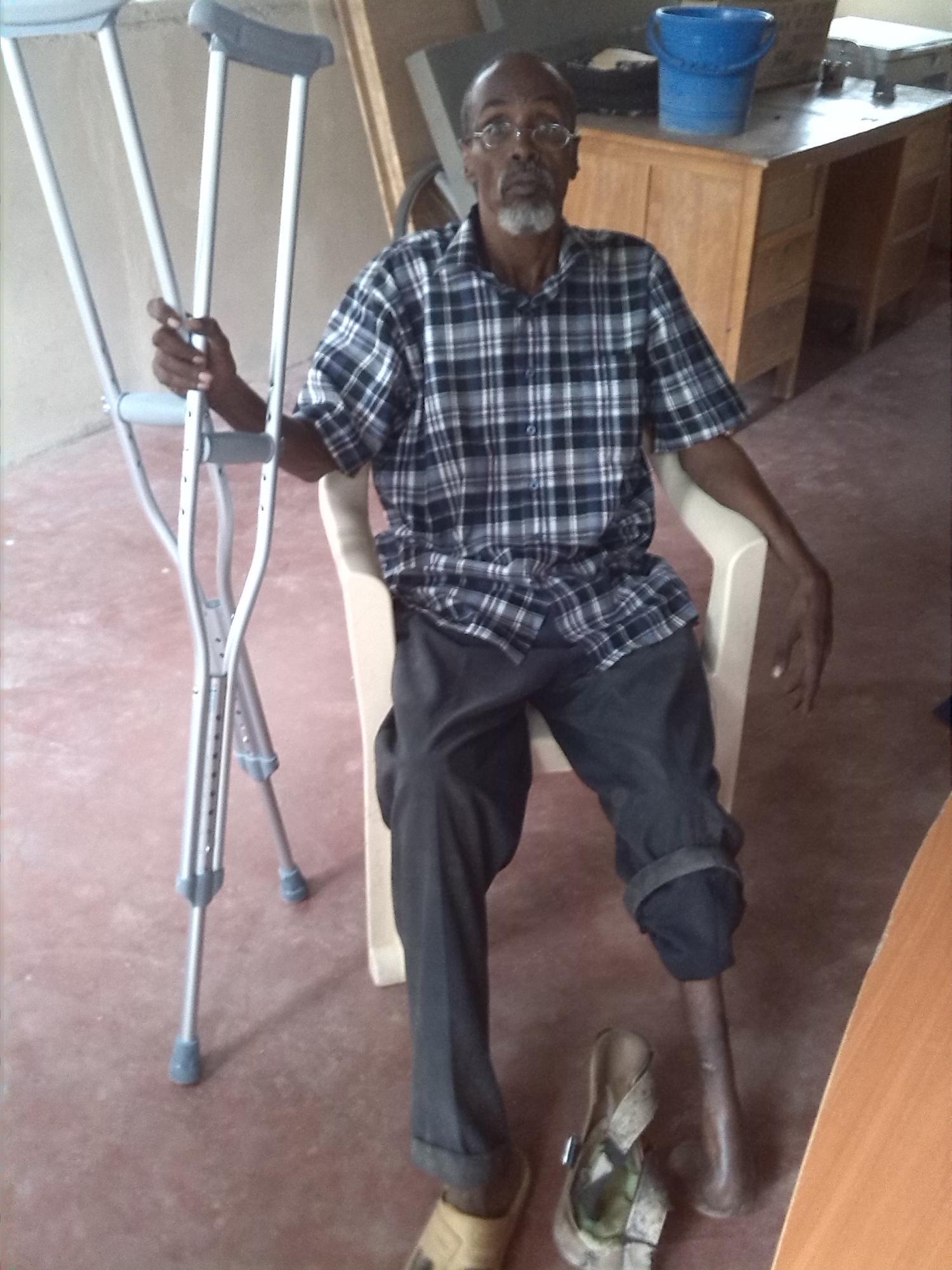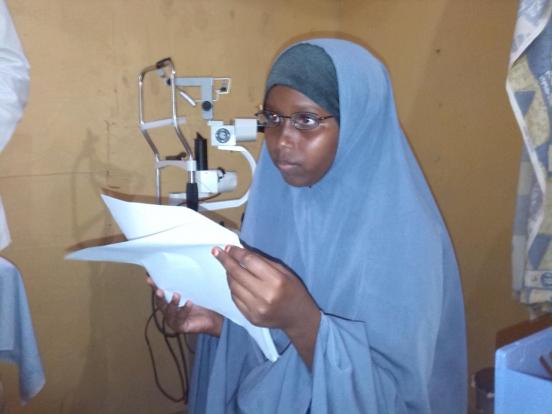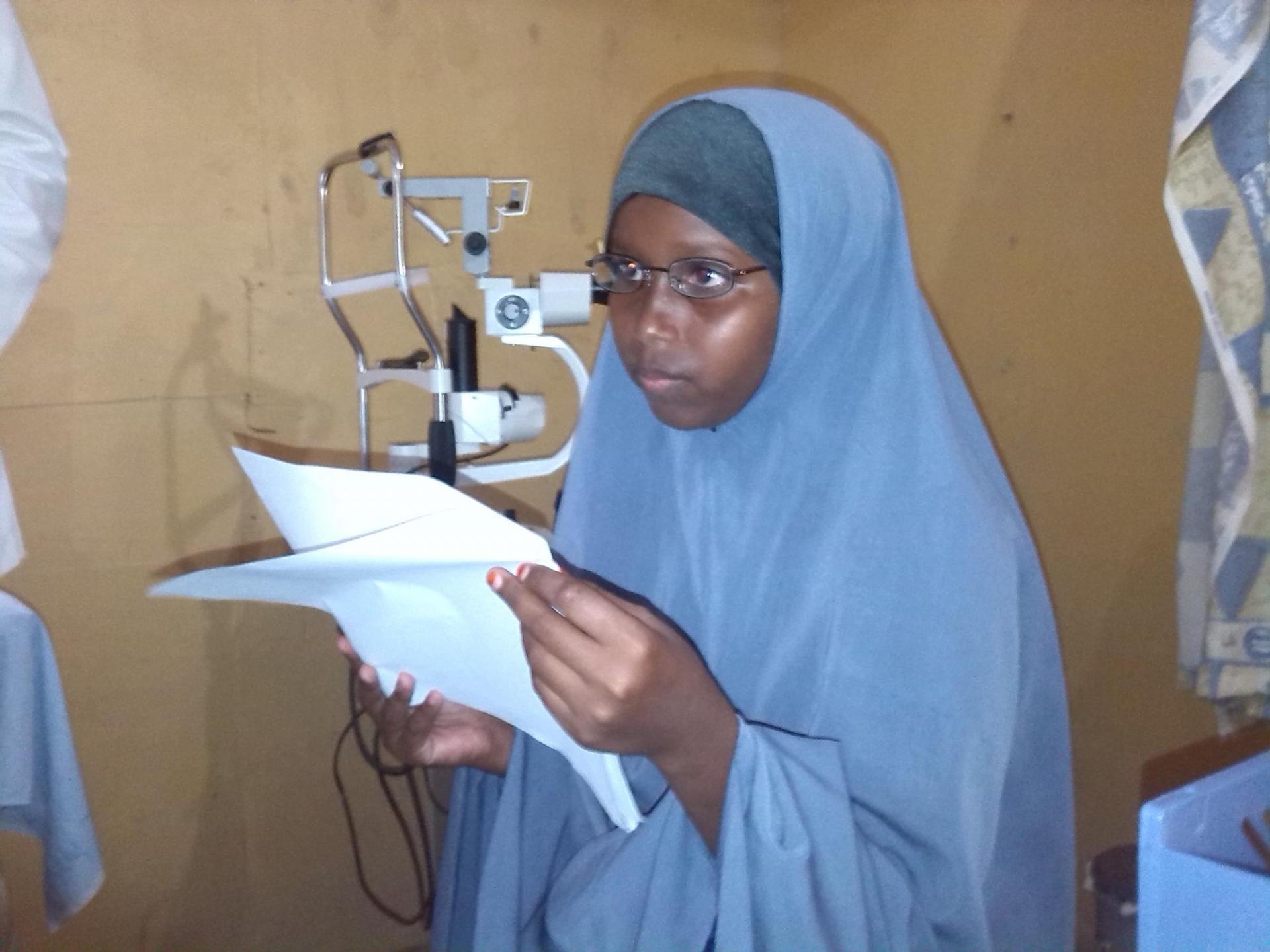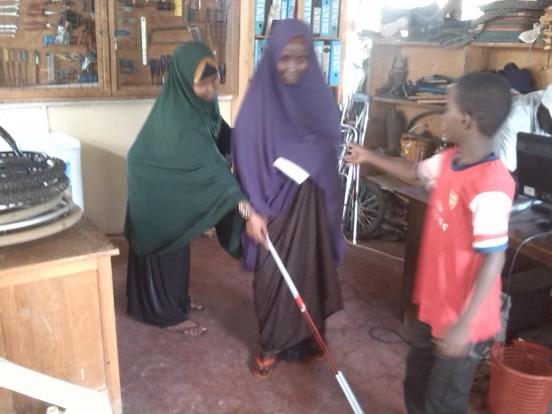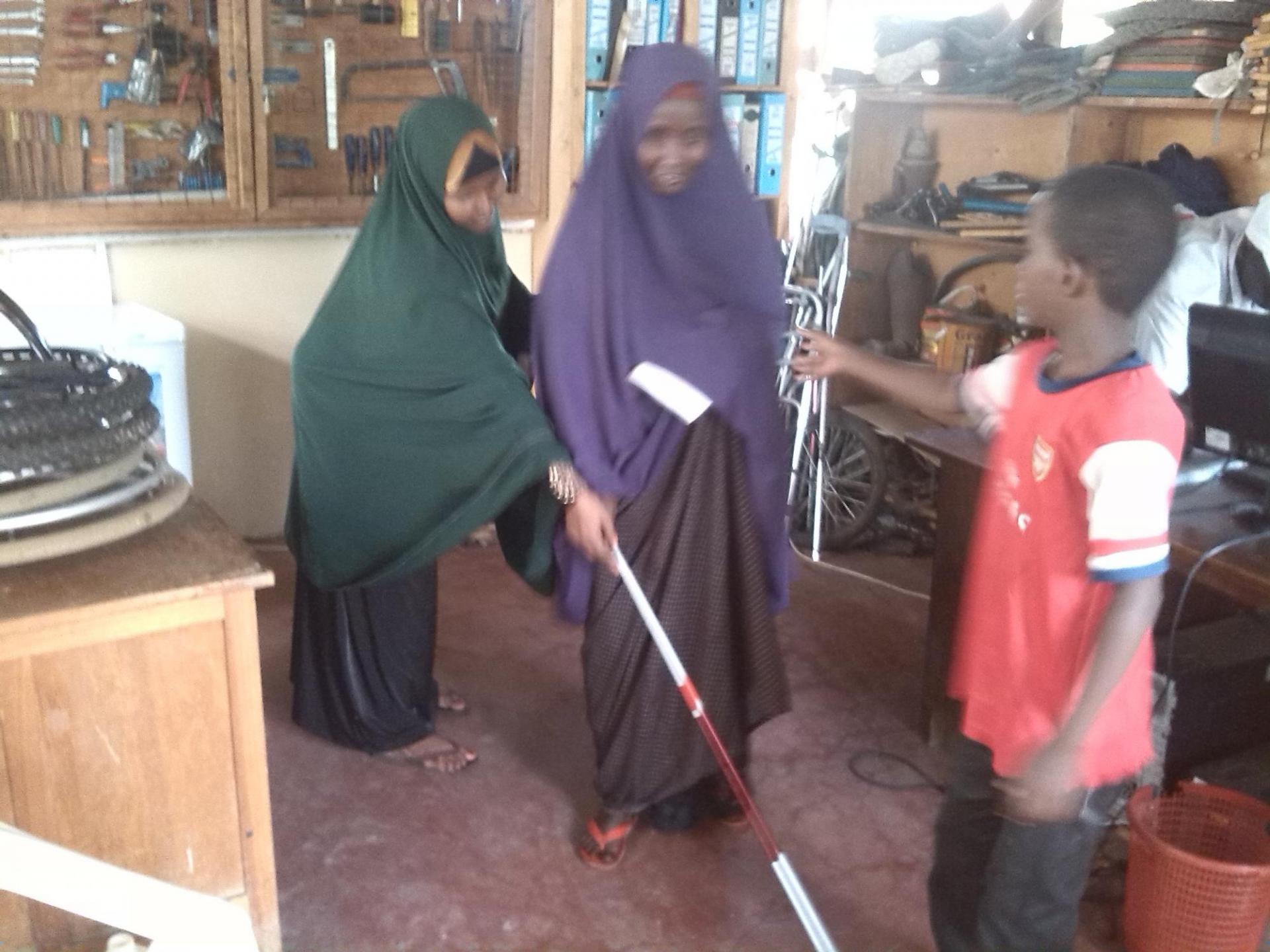Community service
Dadaab
OVERVIEW
Lutheran World Federation is an international organization with an Area Program operational in Dadaab providing services to refugee’s residentsin the camp. 96% of the refugees in Dadaab are of Somali Origin; however there are also refugees from other countries such as Ethiopia, Rwanda, Burundi, South Sudan and the Democratic Republic of Congo. Provision of services to older persons, persons of concern with psychosocial needs and rehabilitation of persons with disabilities are project activities the organization carries outunder the Community Services sector.
LWF provides rehabilitation services to Persons With Disability (PWDs) in Hagadera, camp reaching over 3,771 persons with disability, whereas services to over 15,000 older persons and 721 persons with psychosocial needs in all the camps including Ifo 1, Ifo 2 and Dagahaley.
The Community Services structure consists of refugee representatives of PWDs and Older persons forming the Community-Based Rehabilitation (CBR) and Elderly committees respectively, Community Outreach and Social workers, mid-level therapists, rehabilitation and mobility aid artisans, and national social staffs,psychosocial counselor and national technical staffs well trained in rehabilitation of PWDs.
The technical staffs are licensed and recognized by the Kenya Occupational Therapist Association (KOTA), the World Federation of Occupational Therapists (WFOT), Kenya Physiotherapists Association (KPA) and the World Federation of Physiotherapists (WFT).
LWF is the lead agency tasked with the role of mainstreaming and coordinating provision of specialized services to PWDs in Hagadera, and to older persons and persons with psychosocial needs in all the camps in Dadaab. LWF collaborates, coordinates and works closely with all partner organizations in Dadaab in forums such as the Inter-Agency Coordination meetings. These partners include: World Food Program (WFP), International Rescue Committee, Care International, Save the Children International (SCI), World Vision, Danish Refugee Council (DRC), Norwegian Refugee Council (NRC), Department of Refugee Affairs (DRA), International Organization for Migration (IOM), Terre Des Homes (TDH), Kenya Red Cross Society (KRCS), Islamic Relief, Windle Trust Kenya (WTK), Refugee Education Trust (RET), Handicap International, Medicines Sans Frontiers (MSF), Refugee Consortium of Kenya (RCK), Rapid Relief Development Organization (RRDO), National Council of Churches in Kenya (NCCK) and Fafi Integrated Development Association (FAIDA).
The CBR matrix guides the approaches LWF uses to implement activities targeting PWD. The five components of the CBR matrix include; Health, Livelihoods, Social, Empowerment and Education. All PWDs are entitled to support in the above mentioned areas. To older persons and persons with psychosocial needs LWF uses the Community Based Psychosocial Approach (CBPA).The 2 approaches utilized by LWF in implementation complements the rights based approach for refugee protection and provides opportunity for persons of concern to participate in comprehensive needs assessment and subsequent provision of rehabilitation and other specialized services.
The UN convention of the rights of persons with disability provides that all PWDs have a right to access professional services. To support this LWF has established referral links with other service providers in the region (outside Dadaab) to provide professional services/medical procedures such as minor orthopaedic surgery, cleft lip surgery, mental health therapy and provision of prosthesis. The medical procedures are sometimes necessary to correct a medical condition before subsequent rehabilitation is completed. The ultimate aim of rehabilitation is to restore normal functioning of body parts geared towards functional independence. Some of the service providers in the region include AIC Cure International Hospital; providing minor orthopaedic and cleft lip surgery and Kangemi Rehabilitation Centre; providing prosthesis fitting services. Currently there are many clients in need of these services.
Services provided at the Rehabilitation Centers and at Social offices
Whenever a PWD or an older person visits the Rehabilitation Centers or the Field offices, registration is done. This entails capturing the names of the individual, type of vulnerability or disability, family set up, occupation, residence and any other specialized assistance that the individual has received. Vulnerability and/or disability assessment and screening is then carried out and internal referrals made to access services such as physiotherapy, psychosocial support, occupational therapy, postural management, technical aid or provision of assistive and mobility devices.
PWDs and older persons who are most vulnerable such as the bedridden clients are usually provided with mattresses, blankets, mosquito nets, bed sheets, hygiene kits and physiotherapy kits to promote their wellbeing and improve their living conditions in the camps . Other NFIs;such as shelter and wash services are provided to PWDs and older person through interagency referrals. Psychosocial support services are provided to clients after screening has been done by the psychosocial counselor and mental health staffs.
Social and psychosocial services to older persons of concern and persons of concern with psychosocial needs are accessible at LWF social offices in all the 5 camps in Dadaab i.e. Hagadera, Dagahaley, Ifo 1 and Ifo 2. PWDs on the other hand access rehabilitation services at the rehabilitation centers in Hagadera camp.
FUNDING
Community service projects currently are funded by UNHCR, LWR/BPRM, CoS, ELCA/ALWS, ACT Appeal
Reception / Transit Center
Kakuma
Lutheran World Federation Kakuma Sub Programs manages one Reception centre at Kakuma and a temporary Transit centre at Nadapal which is the border between Kenya and South Sudan border These facilities are meant to assist received asylum seekers fleeing from armed conflict and other forms of persecution.
LWF staff at the Transit and Reception centers conduct initial assessments to all the new arrivals to determine those that are in need for psychosocial support and any other forms of specialized care.
The Reception Center in Kakuma reception has to date supported refugees and asylum seekers from over 20 nationalities from all over the world since it was set up in 1998. 80% of the camp population has passed through the facility.
It is the second point of contact for asylum seekers as they first have to pass through relevant Government offices represented by the Refugee Affairs Secretariat (RAS) for security clearance. Once at the Reception centre with clearance documents from the government i.e RAS or Immigration department at the border, psychosocial assessments are conducted to identify the vulnerability status of the asylum seeker. Some of the most commonly identified vulnerabilities include single mothers, Unaccompanied and Separated Children, lactating mothers, expectant women, malnourished children, the elderly, persons with disability, GBV survivors, Child soldiers, etc, and these categories of asylum seekers often receive special support and linkages to specific agencies and authorities so as to make them settle well in the camp
All the asylum seekers are then provided with initial support that includes:
- 3 hot meals per day, courtesy of the World Food Program (WFP)
- NFIs (Non-Food Items) - Every household receives basic NFIs including sleeping mats, blankets, jerricans and kitchen sets. Girls and women of reproductive age also receive bar soap and sanitary pads and pants, while the elderly (persons above the age of 59 years) are also provided with mattresses and second hand clothes
- Information about the rights and resposibilities as refugees, as well as information about the services provided by different agencies in the camp. This is aimed at protecting the new arrivals from possible exploitation while staying in the camp.
The project has also been able to assist those asylum seekers with different Education level, skills they may be having, their previous economic activity captured during assessments through referrals to various partners who have utilized the skills in providing quality services to the community and in the process, the asylum seekers have been able to earn either an incentive or get payments directly for services they provided hence many have made Kakuma a home away from home in the process.
To ensure safe environment and dignified reception of all received asylum seekers and cushion them against harsh weather conditions and outbreak of contagious diseases like cholera, LWF maintains the both Kakuma and Nadapal transit centers through repairs, construction of additional shelters sanitation facilities, continuous cleanliness in coordination with asylum seekers and provides security both day and night.


